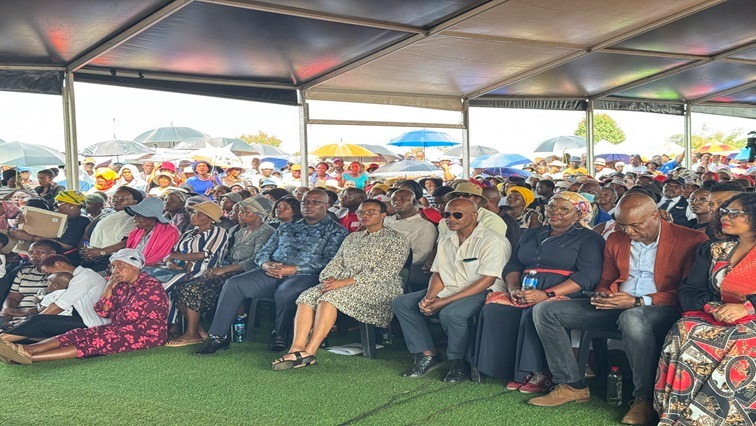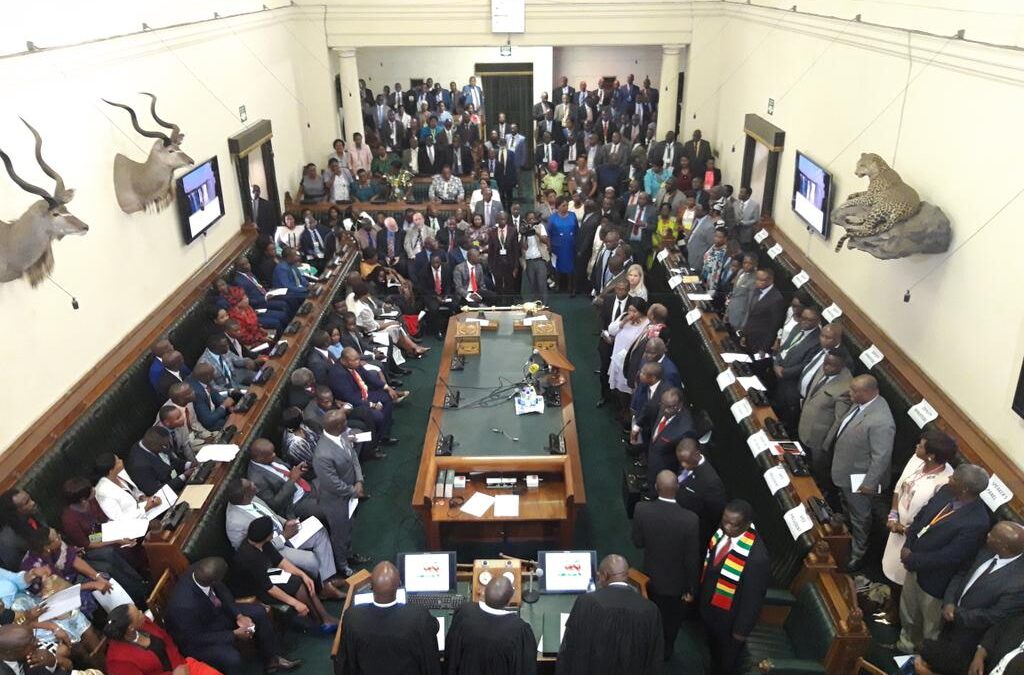Vongai Masuka
In a heart-wrenching incident that shocked the nation, a 26-year-old man, Echfel Musaida Gora, who was accused of killing his girlfriend tragically passed away while under hospital care. This incident serves as a grim reminder of the negative impact relationships can have on individuals when they spiral out of control.
The case of Gora and his late girlfriend, Sharon Mashowo, is not an isolated incident in Zimbabwe, as similar cases highlighting the destructive consequences of relationships have unfolded in the past.
Gora’s troubles began when a heated argument erupted between him and Ms. Mashowo last week in the Nyameni suburb of Marondera. The disagreement escalated to a point where Gora, overwhelmed by emotions, allegedly stabbed Ms. Mashowo at the back of her head using an Okapi knife.
Following the horrific act, Gora locked her in his room and fled the scene, leaving her to succumb to her injuries. As Gora was consumed by guilt and remorse, he sought to end his own life by ingesting an unknown poisonous substance in Odzi.
News of Ms. Mashowo’s tragic murder quickly spread like wildfire on social media platforms, with netizens expressing their condolences to the grieving family. This incident served as a stark reminder of the depths of despair and violence that can permeate relationships, leaving a community in shock and mourning.
Regrettably, the case of Gora and Ms. Mashowo is not a new incident in Zimbabwe.
In recent years, several cases have emerged that shed light on the negative impact of relationships when they take a dark turn. One such case that garnered significant attention involved a young couple in Harare, where a man brutally assaulted his partner, leaving her with life-threatening injuries.
The devastating consequences of relationships gone awry extend beyond the immediate victims. Families, friends, and communities are left grappling with the aftermath, haunted by the pain and loss inflicted upon their loved ones. Such incidents underscore the urgent need for increased public awareness, prevention strategies, and support systems to address the underlying issues that contribute to these tragic outcomes.
Law enforcement agencies, social service organizations, and mental health professionals must work collaboratively to intervene in volatile relationships, providing resources and counseling to individuals embroiled in toxic dynamics before they escalate to deadly proportions.
This tragic incident is a stark reminder of the dark side of relationships, where conflicts and disagreements can escalate into acts of extreme violence and even loss of life. It highlights the importance of understanding the underlying factors that contribute to these destructive outcomes.
Within the context of Zimbabwe, incidents of domestic violence and fatal disputes within relationships have been a cause for concern. These cases not only claim lives but also leave lasting emotional scars on survivors and their communities.
This story serves as a wake-up call for society to address the deep-rooted issues that perpetuate such acts of violence within intimate relationships.
The Zimbabwe Gender Commission has been at the forefront of raising awareness about gender-based violence and femicide in the country. Their reports indicate that between 2015 and 2020, over 1,200 women lost their lives due to gender-based violence. These alarming statistics underscore the urgent need for comprehensive measures to tackle this pervasive problem.
To address the negative impact of relationships, it is essential to promote healthy relationship dynamics based on respect, equality, and open communication. Education and awareness campaigns can play a vital role in fostering understanding about consent, boundaries, and conflict resolution within relationships. By empowering individuals with the knowledge and skills to navigate relationships in a healthy manner, we can work towards preventing incidents of violence and harm.
Creating a supportive environment where survivors feel empowered to seek help is essential in breaking the cycle of violence and promoting healing.
Legal frameworks also play a vital role in addressing the negative impact of relationships. Enforcing laws that protect individuals from domestic violence and holding perpetrators accountable for their actions are crucial steps in ensuring justice and deterrence. Strengthening the justice system and providing adequate training for law enforcement personnel can help ensure that victims receive the support they need and that offenders face appropriate consequences.
The untimely death of Echfel Musaida Gora, while awaiting trial for the alleged murder of his girlfriend, Sharon Mashowo, is a somber reminder of the destructive potential of relationships.
It is imperative that society as a whole acknowledges these issues and actively works towards fostering healthier relationship dynamics, early intervention, and effective support systems. Only through collective efforts can we strive to prevent future tragedies and protect vulnerable individuals from the negative impacts of relationships gone wrong.





0 Comments